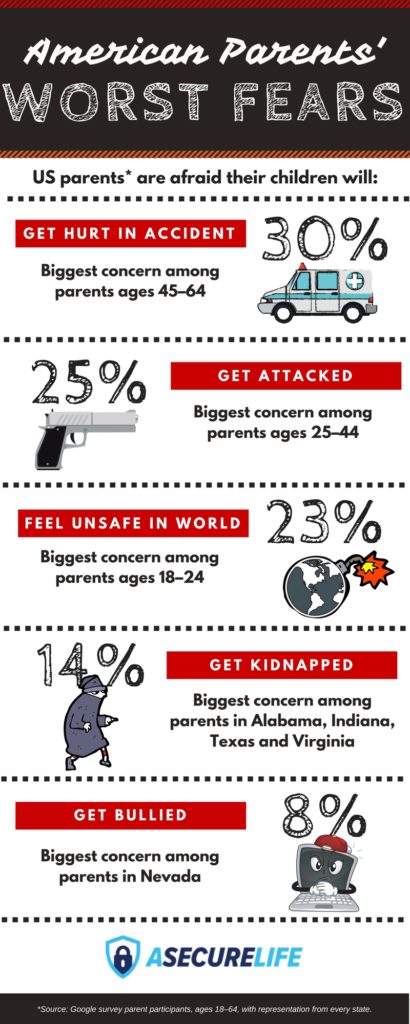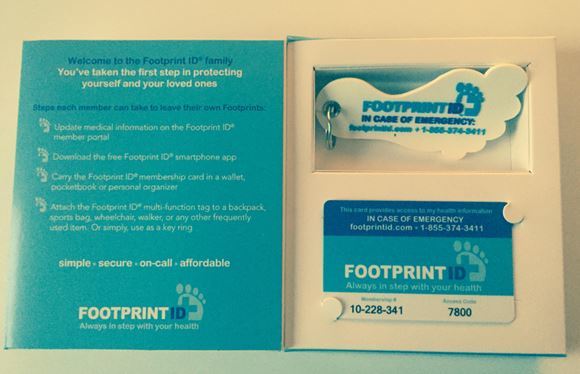
What are your greatest fears as a parent?
The team at ASecureLife published survey results this morning, highlighting the biggest fears of American parents by state. If you’re a parent of a college-bound teen, you can add the fear that they won’t be able to handle life on their own to the list.
I thought it was important to discuss these fears and how you can help dissuade some of them for yourself and your teenagers. ASecureLife also points out that sometimes the biggest things you are worried about aren’t necessarily the biggest threats to your children.
#1 Fear: Accidents
Fear of accidents was the most common concern among parents that were surveyed—30% of parents said it was their top fear. This is indeed a valid fear, especially for parents of teenagers who drive. What can you do? Discuss risky driving behaviors like texting and driving and drinking and driving with your teens before they leave for college.
#2 Fear: Violence
25% of parents surveyed expressed that fear that someone would hurt or attack their children as their biggest worry. It certainly makes sense in today’s world that parents are concerned that their teens and college students could be subjected to any form of violent crime. What can parents do? Discuss what your children can do if they feel they are in danger. Talk about exit strategies and where to go for help and protection. Have serious discussions about doing things in groups and avoiding unsafe situations.
#3 Fear: Children Feeling Unsafe
Of the parents surveyed, 23% said their top fear was that their children felt unsafe. With terrorist threats and violence all around them, it’s natural for your teens to feel unsafe, but it’s your job as their parent to equip them with the knowledge and the tools to help dissuade their fear. Discuss what to do when your teen feels unsafe. Explain that she can’t let the fear control her and that she has power over her fear.
#4 Fear: Kidnapping
Approximately 14% of parents surveyed listed kidnapping or abduction as their greatest fear. Even though a small percentage of children are kidnapped or abducted each year, it’s wise to educate your teenagers about the dangers of interacting with strangers and how to be aware of suspicious people in or near where they are.
#5 Fear: Bullying
Bullying was the least commonly reported fear on the survey—only 8% of parents listed it as a top concern. However, national statistics show that 28% of students in grades 6-12 experienced bullying; while 30% admit to bullying others and 70% of young people say they have witnessed bullying in school. It’s important to teach your teenagers to be kind to other and intervene when other teens are being bullying. If you fear your teen is being bullied, have a discussion and take appropriate parental action.
So many parents and teens fall prey to fear. But the key is to face those fears, know the facts, and make a plan if any of these situations threaten your teenager.











